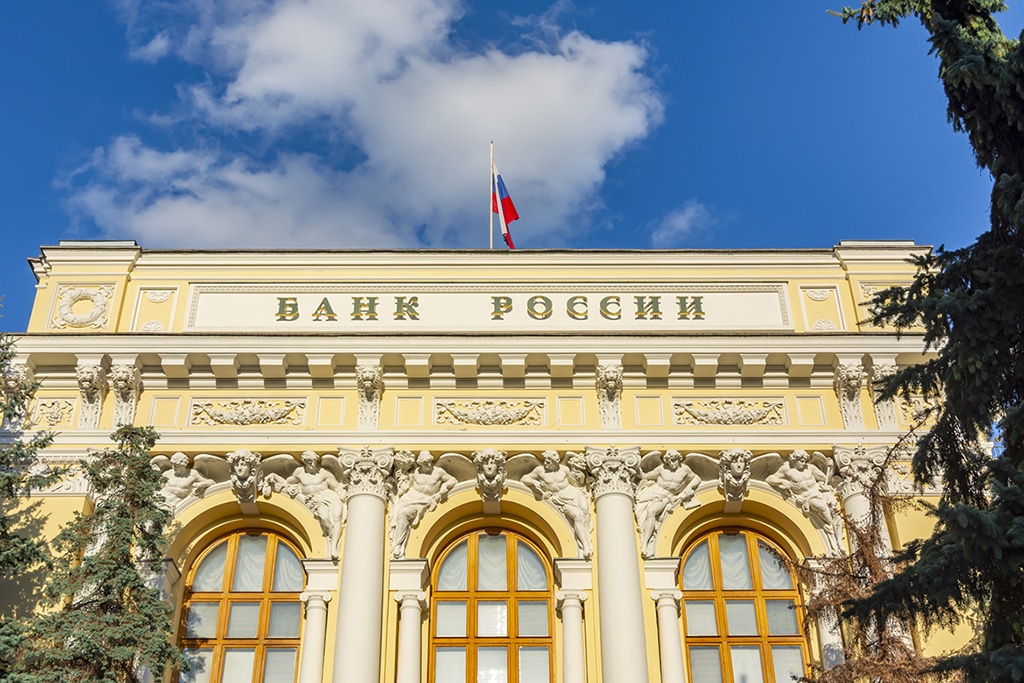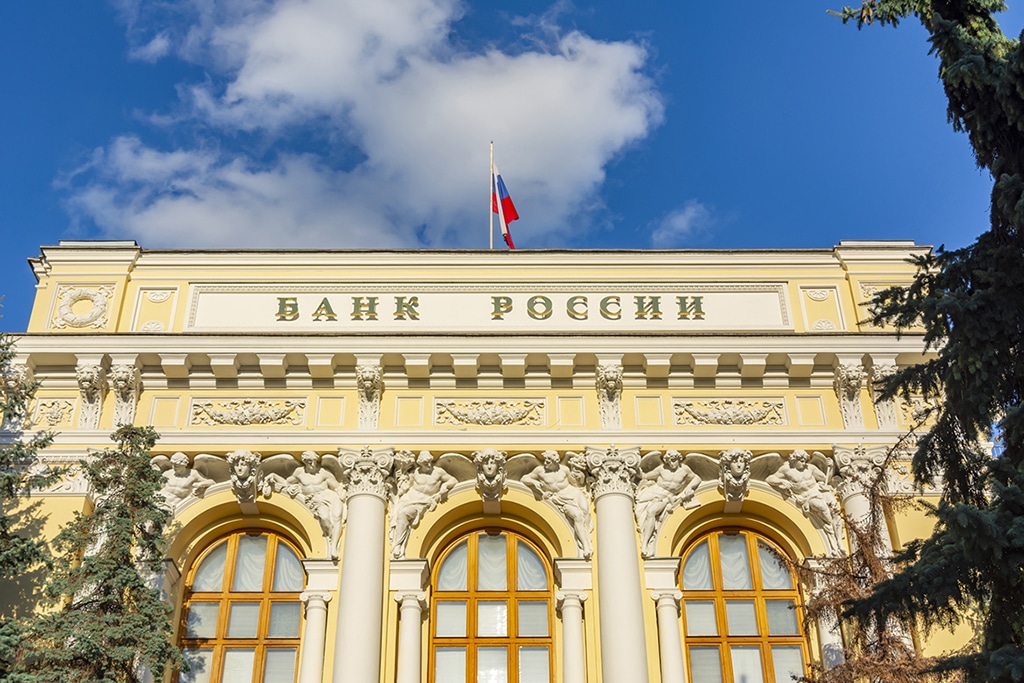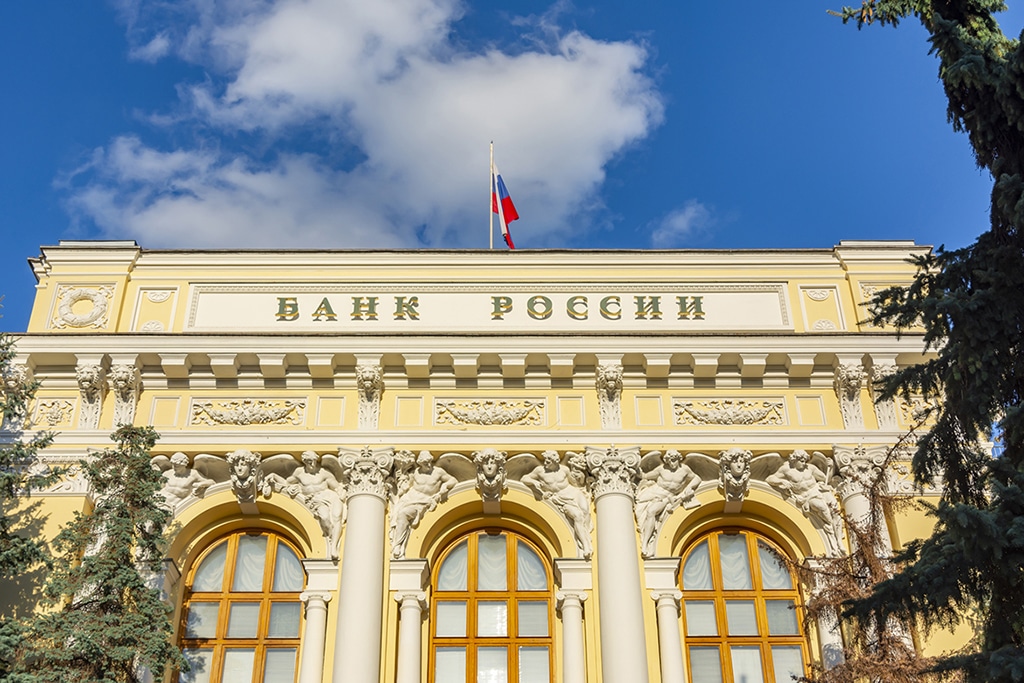Increasing the interest rates will help the central bank in limiting the outflows and cash withdrawals from saving accounts.
On Monday, February 28, the Russian Central Bank aka the Bank of Russia doubled its interest rates from 9.5% to 20% in what seems to be an emergency move to control cash outflows.
Interest Rates by te Bank of Russia
Over the last week, the Russian Rouble has collapsed by nearly 40% hitting a low of 120 against the US Dollar. The Bank of Russia has also asked export-focused companies to sell foreign currency as the Rouble collapsed to record lows.
On Sunday, February 27, Russian President Vladimir Putin ordered his military command to put its nuclear-armed forces on high alert. The West has been putting up big sanctions on Russian financial institutions cutting it down from the rest of the world.
In its recent set of sanctions, the US and its NATO allies have banned Russia from the SWIFT transaction system. The Bank of Russia said that it is targeting inflation at 4% and will initiate all necessary measures to ensure financial stability.
The recent collapse of the Russian Rouble has eroded its purchasing power and thus citizens have been withdrawing huge sums from their savings bank accounts. Regions like Moscow and St. Petersburg witnessed long queues of people withdrawing money from the ATM.
Thus, the central bank said that it has decided to increase rates bring deposit rates to levels “needed to compensate for the increased depreciation and inflation risks”. “This is needed to support financial and price stability and protect citizens’ savings from depreciation,” it added.
What Do the Western Sanctions Mean for Russia?
Russia is currently the world’s third-largest supplier of oil and gas and holds $630 billion worth of reserves. However, a lot of this cash reserves are in foreign currencies like the dollar (USD), euro (EUR), and Sterling Pound (GBP). Besides, Russia also has a lot of its cash reserve in Gold as well.
But the severe sanctions imposed by the West will limit Russia’s ability Russia’s access to the cash. Last month, the Bank of Russia was forced to put more cash in the ATMs as demand for cash reached the highest since March 2020.
The last time Russia hiked the rates to 17% was during its 2014 annexation of Crimea. In the recent turn of events, the central banks said:
“External conditions for the Russian economy have drastically changed”.
Russian authorities have also asked brokers to prevent short-selling on the Russian stock market. It has also ordered brokers to stop executing orders by foreign entities and individuals to sell Russian securities.
In a note to investors, BCS Global markets said:
“These measures may help calm down increased market nervousness, but at the same time they undermine the foundation of the monetary policy, focused on inflationary targeting and flexible exchange rate”.
Read other market news on Coinspeaker.


